I consider it my duty as an Orthodox Christian and as a human being to relate the following experience to the people of the whole world. It is an account of how sixty Orthodox priests met a martyr’s death in Soviet Siberia at the hands of the executioners—of which I was an eyewitness.
When I was acting as a watchman at a meteorlogical observatory. I was appointed in 1929 to the Regional Executive Committee (REC). As a member of REC I was sent to Leningrad. There an expeditionary party of fifteen men was formed of which I was one. It was my first trip to Siberia. Our destination was the town of Irkutsk.
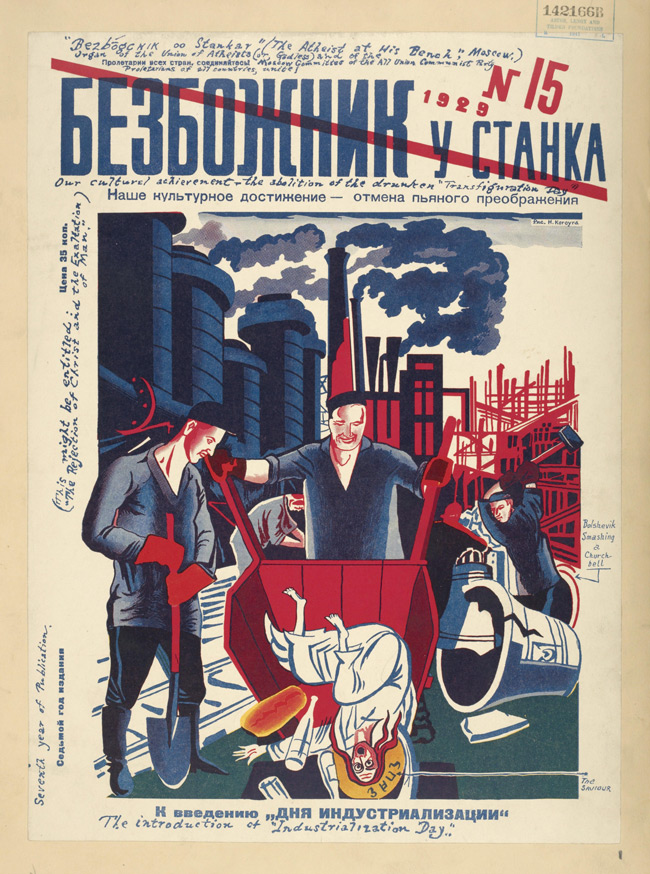
The chief of our expeditionary party was Ivan Paramonovitch Golubev. He was an elderly man with two diplomas, ideally exact and punctual. At the same time he was polite and sympathetic, and gave his extremely ingenious advice to everyone who went to him.
By the 15th August 1929 we were in Irkutsk, 60 kilometers from Lake Baikal. The object of our expedition was to investigate ways of communication, to compare and collate schemes, and to examine and control the work of constructing a mecadamized highway between Irkutsk and Kuvtuk[1], 100 versts over the mountains beyond Lake Baikal. To go by train from Irkutsk to Kuvtuk meant a journey of 194 versts round Lake Baikal with 47 large and small tunnels.
From Irkutsk we traveled on horseback. We had four tents among us, and each of us had a traveller’s folding bed. The road over the Transbaikal Mountains was wild and overgrown. We never met a soul. The stillness was wonderful. The scenery was magnificent. We collected cedar cones, and in the evening we roasted them in hot ashes and made our supper of them. They turned out to be delicious—like roasted nuts.
The first day we covered a distance of 30 kilometers quite safely and in good spirits. The rest of our journey was not so pleasant. It took us seven days to do the remaining 70 kilometers. We had to force our way through brush and fallen trees, and all the time we were followed by a grizzly bear, a so-called anteater, which did not allow us to sleep at night. Although we kept fires burning continually round our tents, yet the bear used to come so close that we heard the noise made by it. And what a noise it was! Sticks, pieces of wood and sometimes heavy stones came at us. This Siberian grizzly bear of ours gave us no peace with his practical jokes! True, we had rifles with us, but it was impossible to see far beyond the campfires. The howling of wolves, the sound of falling fir-cones, every rustle of leaves startled us and, voluntarily or involuntarily, we loudly invoked the name of God. Nowhere do you so believe in God as in the desert or in a dense forest. Regardless of all the conventions of soviet life, Ivan Paramonovitch often said to us: “Pray to God, and He will have mercy on us all, and we shall return home safe and sound to our homes and families.”
We reached Kuvtuk and finished all the work we had been sent to do. Late in the autumn we returned to Irkutsk.
Just at that time a wave of godless communism was raging in Irkutsk. Only two months previously, in August 1929, almost in the center of the town, near Tihkonov Square (changed by the Bolsheviks to Lenin Square), the Cathedral of St. John the Baptist had been the cynosure of all eyes. But now, in the place where the Cathedral had stood, we saw only a heap of rubble. The Cathedral had been blown up. As our group passed the spot, somehow or other we all suddenly came to a standstill at the sight of such vandalism, and Ivan Paramonovitch drew a deep sigh and said: “Who did it disturb?”
We were resting in Irkutsk before our second journey, when Ivan Paramonovitch proposed that we should go to a village on the outskirts of the town called Glaskovo to see a monastery. We drove there in carriages.
On crossing the pontoon bridge over the River Angara, we at once saw a large, white-stoned monastery and a crowd of people beside it. As we joined the crowd we saw that many of the people had tears in their eyes. In the monastery enclosure stood two horses harnessed to Siberian two-wheeled carts. Cats-paws of some kind were throwing icons and other church property out of the monastery, while others were loading them on to the carts. One of these wretched creatures was particularly blasphemous. He was smashing the icons and reviling the images depicted on them in every possible way. At last he shouted loudly: “Ah, yes! There are those incorrupt relics still left. Now we shall see how incorrupt they are!” So saying, he rushed into the monastery and in a few minutes came out carrying a coffin in his hands. The fool put the coffin on the left side of one of the carts and then sat on the holy relics. With a self-satisfied look, he lit a cigar. But the horses started off on their own. Three minutes had not passed when the horse which the atheist was driving suddenly jumped aside off the road and bolted. The godless activist was hurled from the cart with terrific force, broke two ribs and fractured his left arm. The crowd gasped and people told one another it was God’s punishment.
On December 18th we started out on our second journey, this time down the River Angara. We had to pass through Kamenka (Angarstroy). There we saw the famous Alexandrovsky Central Prison, and were entertained by the Buryats[2]. Our final point and destination was the village of Morozovo in Tcheremhovsky Province. There once again we witnessed the wrath of God.
The President of the Morozov town council received an order from the Regional Executive Commitee to take the bells from the church. Some ardent atheists were found who were ready to carry out this infernal act. But what was the result? One of them, as his wife told us later, on returning home after this sacrilegious operation, asked his wife to make some tea. His wife placed a glass of tea before him and also gave him a soft doughnut. The atheist began to eat the doughnut: but he choked with the first bite, and died.
At the end of January 1930 we returned to Leningrad. In 1931, 1932 and 1933 I went every year on a fresh expedition to Siberia. One summer’s night of the year 1933, on account of its black horror, will remain indelibly in my memory for the rest of my life.
In July 1933 our expedition party stopped for the night in the forest on the Katehoog-Nizhnioodinsk road. It was a clear, still night; somewhere nearby a stream was chattering caressingly, the trees were whispering softly in the breeze, and the perfumes of the forest flowers floated down the valley. That valley I shall never forget; I shall remember it for ever! Till late at night we were sitting cheerfully at the camp fire and talking peacefully without the least suspicion that on this very spot a ghastly tragedy was to be enacted.
Our light, forest sleep was interrupted by raucous and peremptory shouts. We jumped to our feet. The leader of our expedition, Boris Nikolaevitch Martyshovsky, a native of Irkutsk, seized his binoculars, while others set the two surveyor’s levels and began to look in the direction from which the voices came. And at once we saw a crowd of men moving in our direction. Who were they and where had they come from in the middle of the night and in a deserted forest? Perhaps it was a hallucination.
It was no hallucination. The crowd came nearer and nearer driven on by insolent and peremptory shouts, the cause of which we could not yet make out. But now we could see the men’s faces and clothes. They were living skeletons wrapped in fantastic rags. Over the shoulder of each of these skeletons was a rope, and behind the crowd a barrel was mounted on some kind of a fatuous carriage. The skeletons were pulling it. We afterwards learnt that the barrel was full of human excreta. One of our expedition who did not lose his presence of mind even at the sight of that outrageous spectacle, managed to count the crowd. There were sixty of them. On each side of the crowd marched convoys in semi-military uniform, armed with rifles; and it was they who were shouting.
Noticing the camp of our expedition, one of the convoys signaled to the crowd to stop, and in pure Siberian chekist jargon shouted loudly in our direction: “Flop and don’t flap an eyelid!” (“Lie down and don’t move!”) One of the convoy began to run back, evidently having received an order.
About ten minutes later a whole platoon of armed men appeared. They advanced towards us with their rifles at the ready. The commander of the platoon and the political officer[3] came out towards us. They asked who we are and demanded identity documents. After that, the platoon commander asked us sternly what grounds we had for camping on territory belonging to a government forced labor concentration camp of the N.K.V.D. (secret police). We told him that we had not the slightest idea that there was a concentration camp in the vicinity and that it was not marked on the map, and he seemed satisfied with our answer. He then told us that we must be as dumb as fish, and he explained with pathos that we were accidentally having the honor of being present at one of the most glorious operations of the VTK-GPU (another name for N.K.V.D.), the fiery sword of the proletarian revolution. “Those people,” he said, pointing at the unfortunate victims, “are sentenced to be shot, and you of course will not pity them. They are devils of darkness, useless ‘pops,’[4] dope of the people.” The commander ordered us to go into our tents, while he told one of the guards who accompanied him to move the sentenced men towards the pit. Apparently there was a pit somewhere closeby. Dumb and petrified with horror, sick with disgust at the executioners, and ashamed of our own cowardice and fear, we sat in our tents listening tensely for the approaching silence of death. But there was again the sound of human voices.
“You are breathing last breath. Say, is there a God?”
“I believe in one God the Father, Almighty Creator,” sang a meek voice.
The report of a rifle! There was a lump in our hearts as we sat in our tents. Then a second report, a third… Evidently the condemned men were being introduced to the pit one by one. And again more than once the same wooden, lifeless voice asked: “Is there a God? Speak!”
“All-Seeing, All-Knowing, Omnipresent, Almighty, All-Merciful, All-Good!” was the reply.
Many years, perhaps, will pass, but that grave on the Katchoog-Nizhnioodinsk road will be found and will draw crowds of pilgrims who will visit the unknown Siberian forest in order to offer their fervent prayers to the holy martyrs of the Orthodox faith who gave their lives for our Lord Jesus Christ.
M. G.
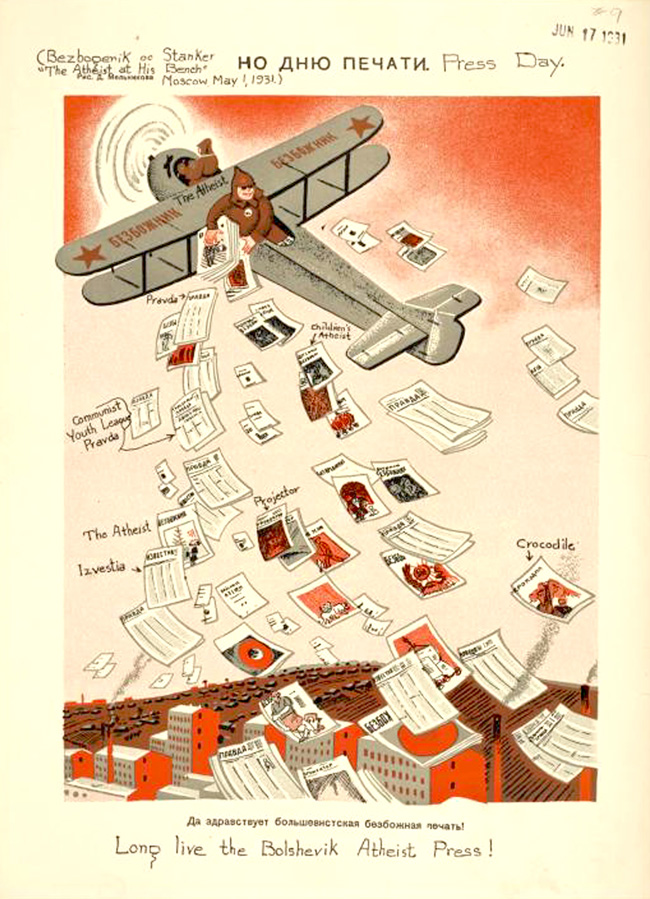
[1] U pronounced each time as in “I put on my coat.”
[2] Buryats: A Siberian tribe of Mongolian origin
[3] In the Red Army each rank has its political counterpart, so that there is an army captain and a political captain, a general and a political general etc. The political officer’s business is to spy on the army officers.
[4] Pop: a vulgar word for priest (cp. pope, papa etc.).
Orthodox Life, Vol. 1, No. 1, January-February 1950, pp. 18-22
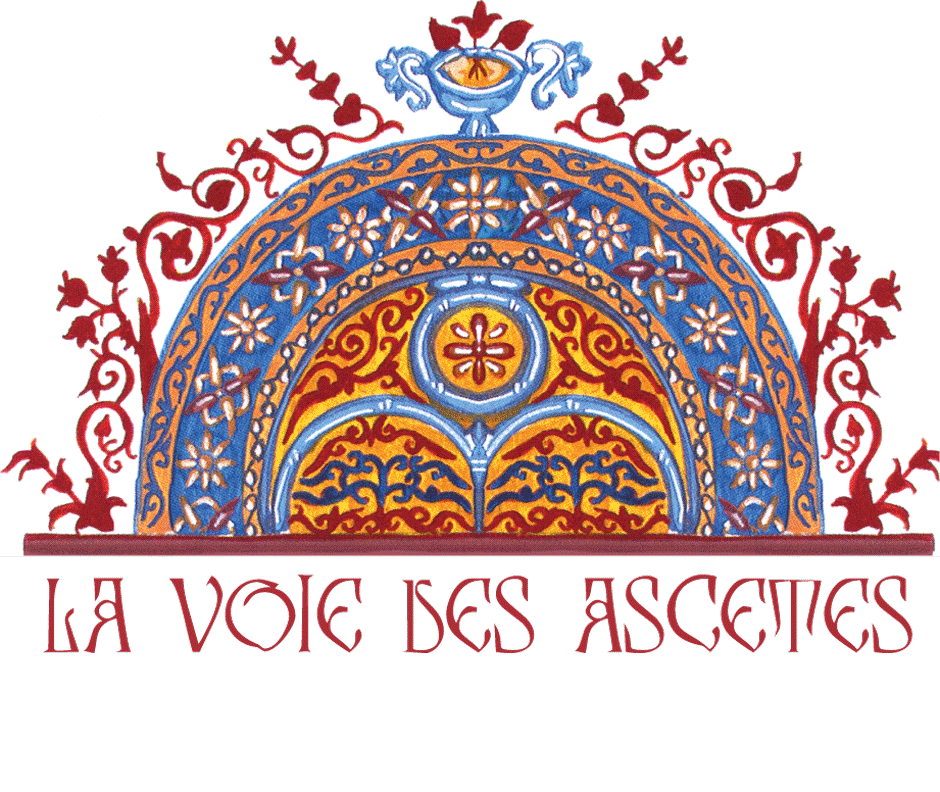
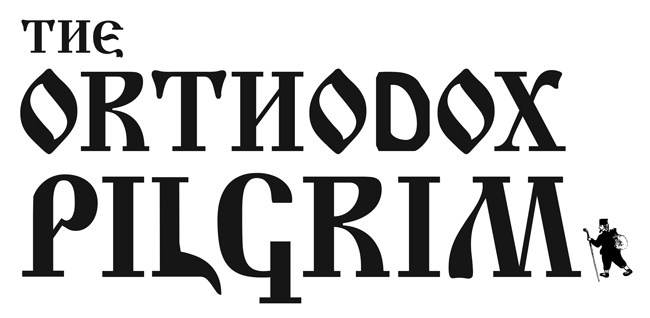
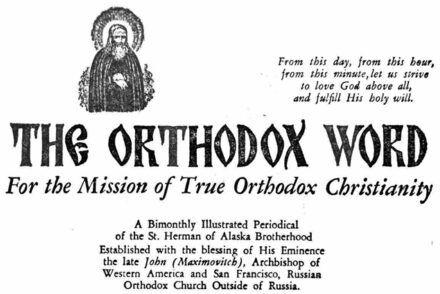
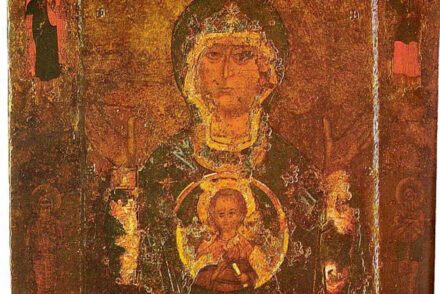
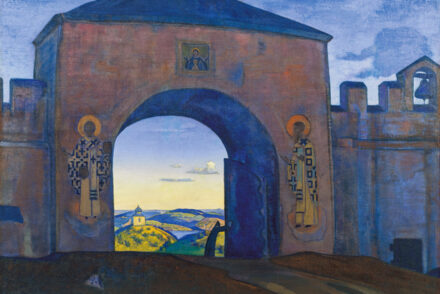
Pas de commentaire